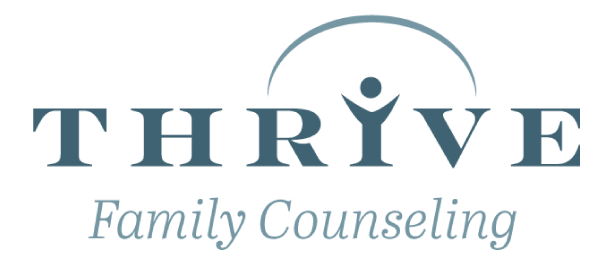

Intervention Strategies for Families Dealing with Addiction
Addiction is a complex issue that not only affects the individual struggling with it but also takes a toll on their family members. Watching a loved one battle addiction can be heart-wrenching and overwhelming. However, there are strategies that families can employ to help their family members seek treatment and embark on the path to recovery. In this blog post, we will discuss various intervention strategies that can make a positive difference in the lives of families dealing with addiction.
Understanding Addiction
Before discussing intervention strategies, we must understand addiction and its impact on both the individual and their family. Addiction is a chronic disease that affects the brain, leading to compulsive drug or alcohol use despite harmful consequences. Families need to realize that addiction is not a moral failing but a medical condition.
Recognizing the Signs
The first step in helping a family member with addiction is to recognize the signs. These signs may include changes in behavior, mood swings, neglect of responsibilities, and physical health issues—as advised by the Little Creek Recovery addiction specialists. If you suspect a loved one is struggling with addiction, seek professional guidance to confirm your suspicions and explore the best course of action.
Open and Non-Judgmental Communication
Effective communication is the cornerstone of any successful intervention strategy. Families should approach their loved ones with addiction in a non-judgmental and empathetic manner. Let them know that you care about their well-being and are there to support them. Avoid blame or criticism, as this can push them further away.

Try to be non-judgmental and encourage open communication
Educate Yourself
To support your family member effectively, try your best to educate yourself about addiction. Understand the nature of the substance they are addicted to, the potential risks, and available treatment options. Knowledge will empower you to make informed decisions and be there for them in the best way possible.
Seek Professional Help
One of the most indispensable intervention strategies for families dealing with addiction is seeking professional help. Substance use disorders are complex, and trained professionals can assess the situation and recommend appropriate treatment options. Consider consulting addiction specialists, therapists, or counselors who can guide you through the process.
Planning an Intervention
What are interventions? They are carefully planned conversations aimed at motivating the addicted individual to seek treatment. These should be organized with the help of professionals experienced in addiction interventions. The goal is to create a safe and non-confrontational environment where the person can see the impact of their addiction on themselves and their loved ones.
Choosing the Right Time
Timing is not to be underestimated when planning an intervention. Pick a time when your loved one is relatively stable and not under the influence of drugs or alcohol. Approach the conversation with compassion, understanding, and a willingness to listen.
Express Love and Concern
During the intervention, express your love and concern for the family member struggling with addiction. Share specific instances that have raised concerns about their well-being. Avoid blame and focus on the emotional impact their addiction has had on you and the family.

Families dealing with addiction should avoid blaming and offer support
Offer Support and Treatment Options
Give your family member information about treatment options, including detoxification, rehabilitation programs, counseling, and support groups. Offer to help them research treatment facilities and make arrangements if they are willing to seek help. Show them that you will be by their side to support them in any way possible.
Set Boundaries
While offering support is of the utmost importance, it's equally vital to set boundaries. Clearly communicate the consequences of continued substance abuse, such as the impact on the family relationship. Be prepared to follow through on these boundaries if necessary.
Stay Engaged in Their Recovery
Recovery from addiction is a long and challenging journey. Make sure you continue to support your loved one throughout their treatment and recovery process. Attend therapy sessions with them, participate in family counseling, and encourage their progress.
Self-Care for Families
Dealing with addiction in the family can be extremely emotionally draining. Don’t neglect yourself in the process, and prioritize your own well-being. Seek support from support groups, therapists, or counselors who specialize in addiction-related issues. Taking care of yourself allows you to better support your loved one.
Stay Patient and Persistent
Recovery can be a bumpy road, and sometimes, it might feel like you're taking one step forward and two steps back. During these challenging times, it's crucial to stay patient and persistent. Encourage your loved one to keep going, even when they face setbacks. Let them know that you'll be there to support them through the ups and downs of their journey toward recovery.
Seek support from support groups or therapy to help you and your loved one navigate the challenges that may arise during recovery. Remember that recovery is a process that takes time, and your patience and persistence can make a significant difference in your family member's journey.
Avoid Enabling Behaviors
Enabling behaviors can unintentionally prolong the struggle with addiction. Make it a priority to recognize these behaviors and take steps to avoid enabling your loved one's addiction. This might mean setting clear boundaries, not providing financial assistance that could be misused, or refusing to cover up the consequences of their actions.
While it can be difficult, these actions can ultimately support your family member's path to recovery by encouraging them to take responsibility for their actions and seek the help they need. Consider seeking guidance from addiction specialists or therapists who can provide you with strategies and insights on how to avoid enabling behaviors effectively.
Celebrate Milestones
As your family member continues on their path to recovery, be sure to celebrate their achievements and milestones, no matter how small they may seem. These accomplishments, whether a week of sobriety or reaching a specific goal in their recovery plan, are significant steps forward.
Celebrating these milestones can reinforce and motivate your loved one to keep pushing forward. It also shows your support and pride in their efforts, which can boost their self-esteem and confidence as they work towards a healthier, addiction-free life.

Try to celebrate victories, no matter how small they are
Take on the Intervention Strategies for Families Dealing with Addiction
Addiction can be a devastating experience for families, but there is hope. Employ these intervention strategies for families dealing with addiction, and you can increase the chances of your loved one seeking treatment and achieving lasting recovery. Never forget that addiction is a disease, and with the right support and guidance, healing is possible. Be patient, stay informed, and continue to offer love and understanding to your family members as they work towards a brighter future.
